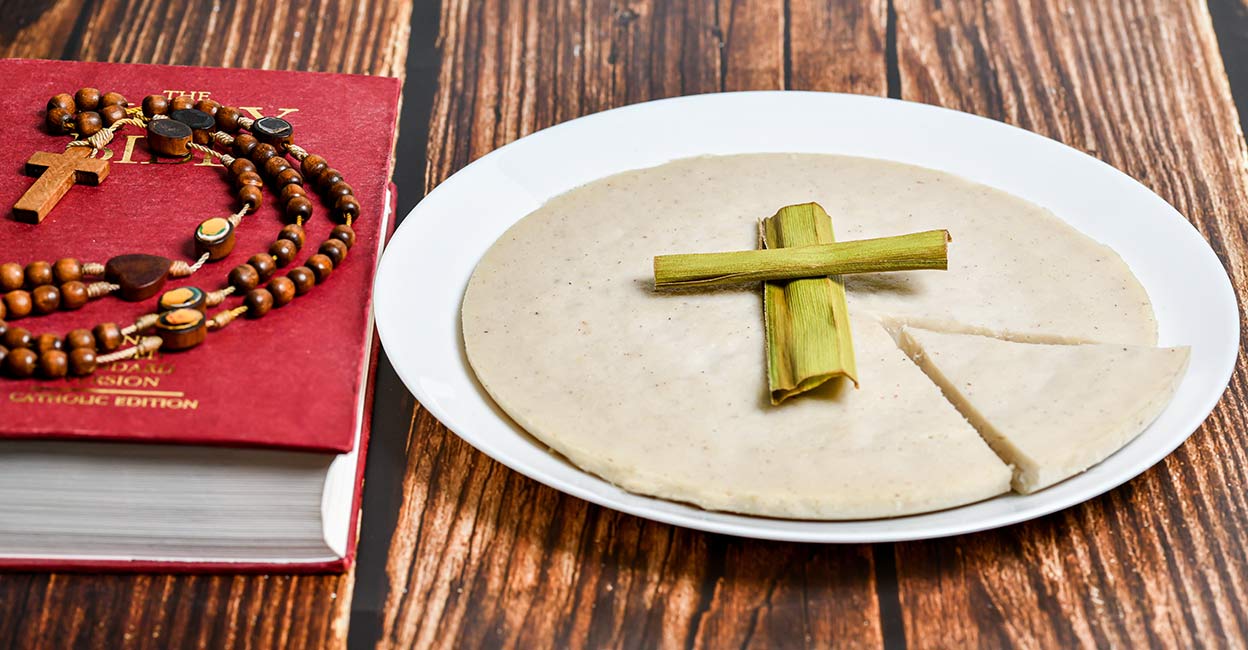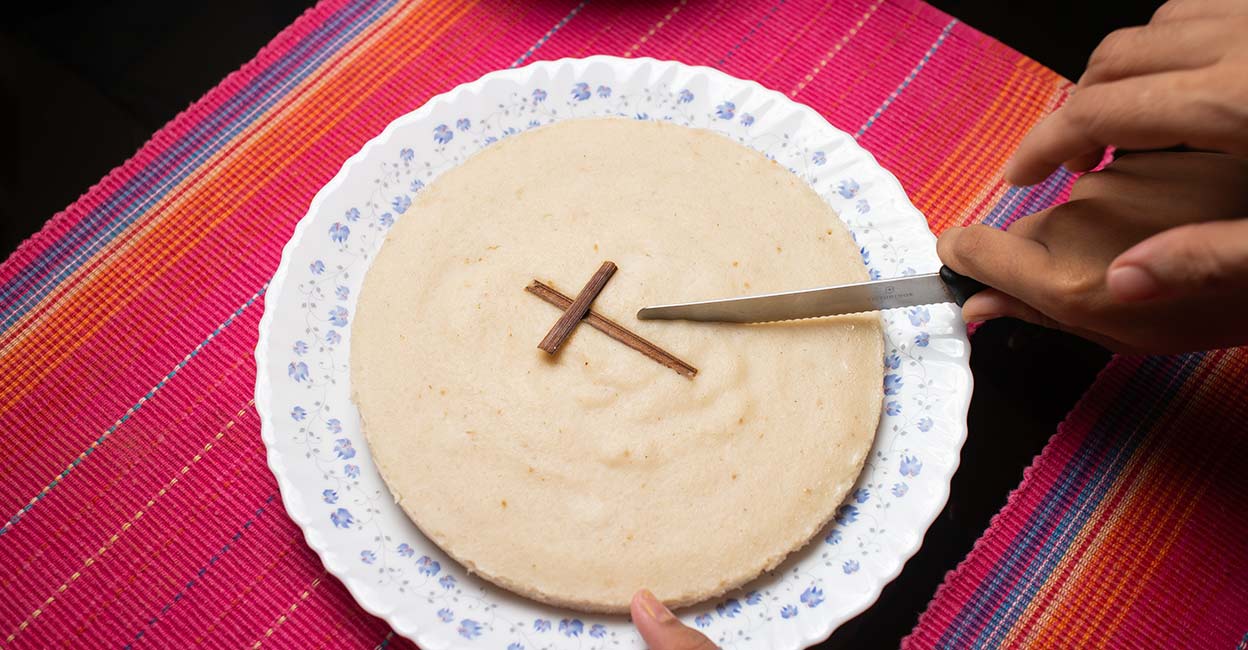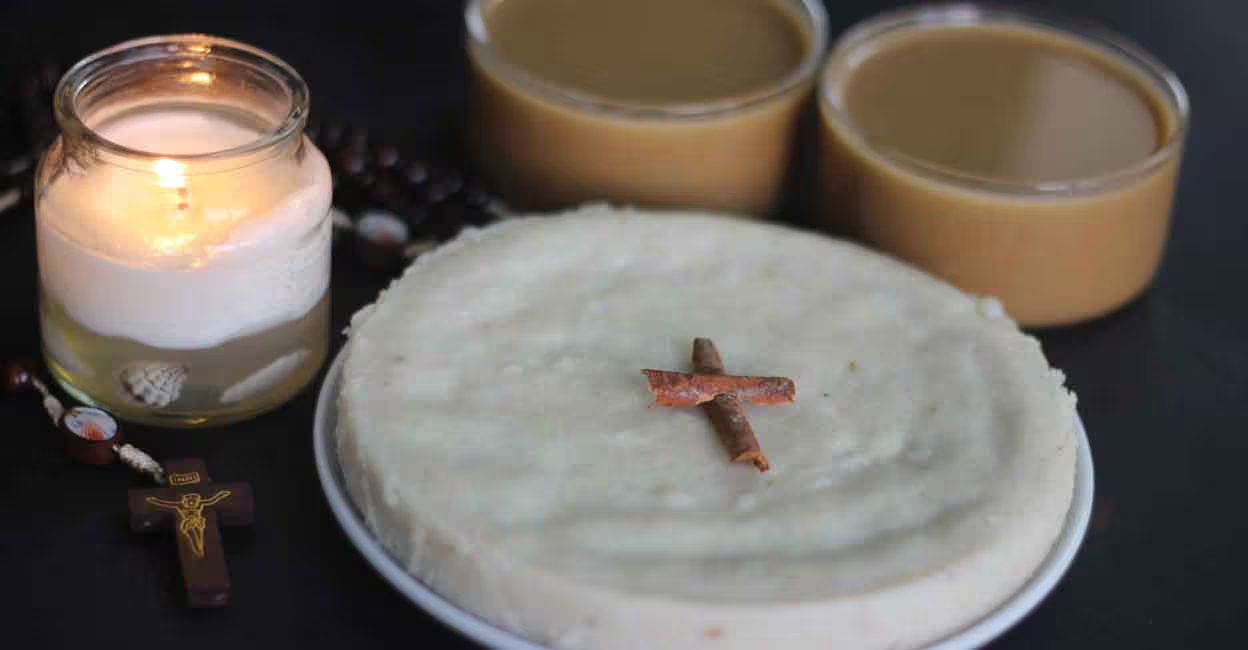The sacred ritual of preparing Pesaha appam and paal on Maundy Thursday

Mail This Article
Pesaha, or Maundy Thursday, holds profound significance for Christians worldwide as it marks the beginning of the period commemorating the passion, death, and resurrection of Jesus Christ. In Kerala Christian households, especially among the Saint Thomas Christians, special Pesaha appam or unleavened bread is meticulously prepared in memory of Jesus’ last supper, embodying the body and blood of Christ within the religious and cultural fabric of the community.
The appam, prepared devoutly as unleavened bread, is referred to as ‘indri appam’ in local parlance. Similarly, the coconut milk and jaggery drink are known as paal, meaning ‘milk’. The process of crafting Pesaha Appam entails soaking rice, grinding it into a smooth batter, and cooking it in a dedicated pan or vessel. This ritual is observed with a ceremonial demeanour, often accompanied by prayers and rituals. The accompanying Pesaha paal, a concoction of coconut milk and jaggery or sugar, is served alongside the appam. In keeping with tradition, the eldest member of the family ceremoniously cuts and serves the bread to family members along with the paal.

Embedded deeply within the cultural and religious traditions of Kerala's Christian community, this dish holds a revered place in their observance of Maundy Thursday and the Holy Week. It is customary for grandmothers to reserve a new earthen pot and ladle for the preparation of paal. Traditionally, the appam is prepared by placing the batter on banana leaves, then transferring it to a thick-bottomed vessel. The vessel is heated from both the top and bottom by placing embers above the covered vessel, allowing the appam to cook thoroughly and attain its characteristic texture and flavour. However, the Pesaha ritual is respectfully omitted if a death has occurred in the neighbourhood. Typically, the appam and paal are also shared with neighbours, fostering a sense of piety, sharing, and love.
The Pesaha ritual is observed in Christian homes on the evening of Maundy Thursday. It is customary for all family members to gather and partake in the Pesaha ritual, led by the eldest member of the family. Notably, the appam and paal are exclusively prepared on this special day, underscoring its significance within the community. The next meal after having appam and paal as supper would be the late afternoon serving of Kanji at churches after the Good Friday services.

Here is an easy method to make Pesaha appam and paal:
Pesaha appam
Ingredients
1 cup roasted rice flour
½ cup urad dal (soaked for two hours after toasting)
1 cup grated coconut
¼ tsp cumin seeds
3-4 pepper corns
2 garlic cloves
4 shallots
Salt as required
Preparation
Grind the soaked urad dal into thick paste by adding enough water
Grind the grated coconut with cumin seeds, pepper corns, shallots, garlic and some water into a coarse paste
Take the rice flour in a huge bowl
Into it, add the urad dal paste and the coconut mixture
Add some water too
Now mix well into soft paste
After one hour, pour the batter into a vessel
Place this vessel in a steamer
You could place a cross made with palm leaves on top
Cook for half an hour.

Pesaha paal
Ingredients
150 gm jaggery (made into thick syrup; strained)
½ cup water
1 cup first extract of coconut milk
2 ½ cups second extract of coconut milk
¼ tsp dried ginger powder
¼ tsp cumin powder
¼ tsp cardamom powder
2 tbsp roasted rice flour
1 banana, sliced (optional)
Preparation
Mix rice flour in second extract of coconut milk
Turn on the flame and boil on simmer
Add the jaggery syrup, cumin powder, dried ginger powder and cardamom powder
Boil well
Keep stirring until it begins to thicken
Add the first extract of coconut milk and banana pieces
Mix well
Sweet pesaha paal is ready
The appam is eaten by dipping it in this paal.

